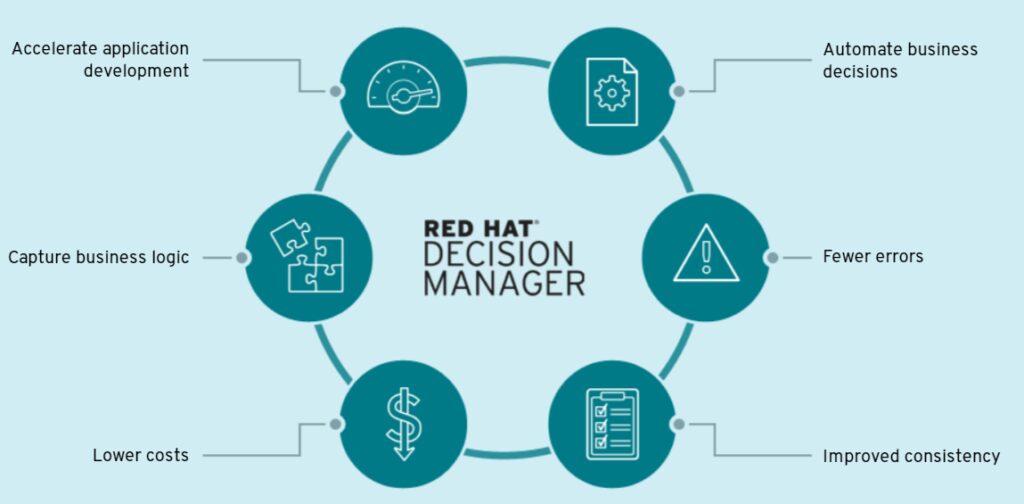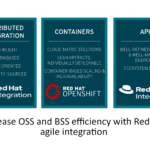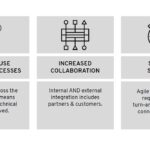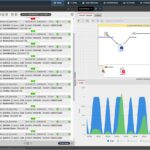Business optimization with Red Hat Decision Manager
Red Hat Decision Manager helps companies build applications that automate business decision. Automating processes eliminates the risk and cost of human error, process duplication and redundancy. With Red Hat Decision Manager, customers have a comprehensive platform for business rules management, business resource optimization and complex event processing (CEP).
Red Hat Decision Manager improves the visibility of business rules by separate rule logic from application code. This means better communication between the business and IT departments. It brings together a powerful rules engine with extensions for CEP, a business resource optimizations engine, easy to use authoring tools, and a standard based repository for rule definitions. It includes web based graphical tool that provide a clear picture into the rules that govern business applications.

EVERY ORGANIZATION MAKES OPERATIONAL DECISIONS.
OPERATIONAL DECISIONS ARE GUIDED BY BUSINESS RULES.

BUT…
HOW DO WE KNOW WHAT THE RULES ARE?
WHAT HAPPENS WHEN POLICIES OR RULES CHANGE?
HOW DO WE KNOW THAT RULES ARE APPLIED CONSISTENTLY?
Red Hat Decision Manager is a powerful, scalable open source business rules management system that includes business resource optimization and complex event processing (CEP) technology. It helps organizations capture business logic and develop applications that automate business decisions. Organizations can incorporate sophisticated decision logic into line-of-business applications with confidence, keeping them ahead of changes in market conditions and regulations. Red Hat Decision Manager separates decision logic from program code and defines it in simple, declarative, business-friendly terms, making it easier and more efficient to implement, manage, audit, and change.
With a choice of modeling tools, including a web-based authoring environment for business experts, project stakeholders can collaborate effectively to build sophisticated business automation solutions. The result is improved business agility, consistent and efficient decision execution, shorter development cycles, and faster time to market.
Benefits
- Automated business decisions
- Accelerated development with business-friendly user interface
- Business rules separated from application code
- Simple configuration and management as embedded APIs or scalable containers
using Red Hat OpenShift - Powerful resource and scheduling optimization
- Shorter development cycles and faster time to market

Features
- Powerful toolsets for both business and IT users
- Cloud-native architecture
- Rich, standards-based application programming interfaces (APIs)
- Pluggable repository with comprehensive access controls and life-cycle management
- Embeddable, high-performance rules engine

Decision server
Red Hat Decision Manager provides decision services for client applications. The decision server evaluates business data against relevant rules to arrive at appropriate conclusions—for example, applying adjudication rules to an insurance claim to determine eligibility, or applying regulatory rules to a business transaction to ensure compliance.
Repository
Red Hat Decision Manager includes a repository based on Git, the widely used source code management system. The repository supports comprehensive and user-definable metadata for categorization of stored assets, as well as fine-grained user access controls and version control for rules and process models.
Resource optimization services
Red Hat Decision Manager includes OptaPlanner, a tool for constructing solvers for complex optimization problems. It can be used to build applications that optimize common business resource planning use cases (e.g., vehicle routing, employee rostering, cloud optimization, task assignment, job scheduling, bin packing).
Authoring tools
Red Hat Decision Manager includes authoring tools optimized for business experts and application developers:
- For business experts, the web-based authoring environment, Business Central, can be hosted on Red Hat OpenShift or on-premise. It provides a powerful suite of easy-to-use features for quick rule creation and management, including DMN modeling, decision tables, domain-specific rule languages, and guided rule editing. Rules can also be authored offline with Microsoft Excel.
- For developers, a plug-in is provided for Red Hat CodeReady Studio for easy integration of rulebased applications with Java code.

Source: Red Hat
For more information on this topic, please Contact us




